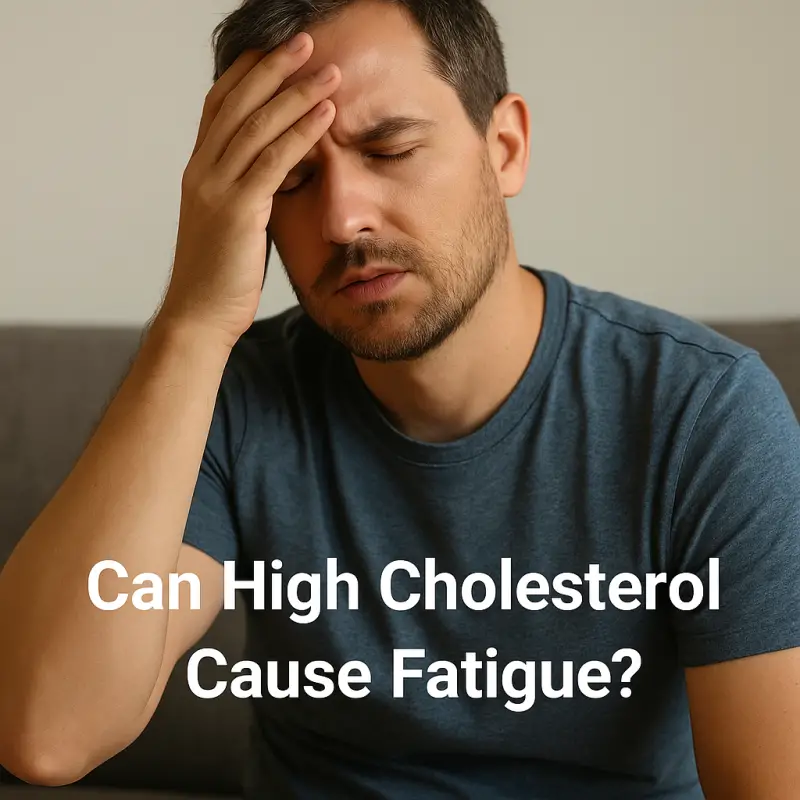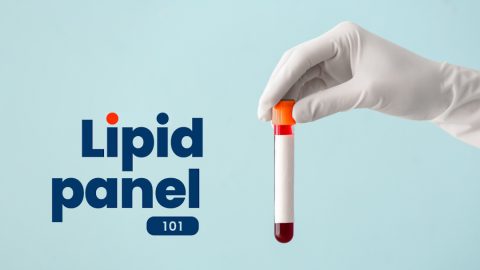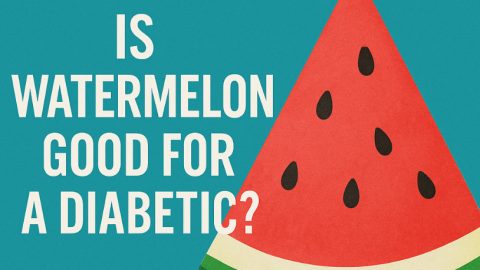Feeling constantly tired can make even simple tasks seem exhausting. Many people assume fatigue comes from poor sleep or stress, but sometimes the cause lies deeper within the body. When your energy drops without clear reason, you might start wondering whether your cholesterol levels have something to do with it.
High cholesterol is a common health issue, often developing silently over time. It rarely shows symptoms in the early stages, yet its effects on circulation and the heart can gradually affect how energetic you feel. Though cholesterol itself does not directly make you tired, its long-term impact on your cardiovascular system might.
Understanding the link between high cholesterol and fatigue can help you recognize early warning signs and take action before more serious complications develop. This article explores how cholesterol works, why it might lead to tiredness, and what you can do to feel stronger and healthier.
Understanding Cholesterol and Its Function in the Body
What Is Cholesterol
Cholesterol is a fatty substance produced naturally by the liver and found in every cell of the body. It helps create hormones, vitamin D, and bile acids that digest fats. You also get cholesterol from foods such as eggs, meat, and dairy products. Although it is essential for normal function, too much of it can become harmful.
There are two main forms of cholesterol. Low-density lipoprotein (LDL) is often called “bad cholesterol” because it can stick to artery walls and cause blockages. High-density lipoprotein (HDL) is the “good cholesterol” that helps remove LDL from the bloodstream. Maintaining a balance between these two is crucial for heart health.
When your body produces or absorbs too much LDL and not enough HDL, excess cholesterol may begin to build up inside your arteries. This gradual process leads to restricted blood flow, making it harder for oxygen and nutrients to reach your tissues.
What Does High Cholesterol Mean
High cholesterol, also known as hypercholesterolemia, means your blood contains excessive amounts of cholesterol, especially LDL. Since the condition develops slowly, most people do not notice symptoms until blood vessels start narrowing. Over time, this can cause significant strain on the heart and blood vessels.
Doctors generally consider total cholesterol above 200 milligrams per deciliter (mg/dL) as elevated. LDL levels above 130 mg/dL are also concerning. However, each person’s risk depends on other factors such as age, family history, weight, and blood pressure. Because there are few early warning signs, regular blood tests are the only reliable way to detect it.
How High Cholesterol Affects the Body
When cholesterol builds up along arterial walls, it forms plaque that reduces elasticity and restricts blood flow. This condition, known as atherosclerosis, limits the oxygen supply to major organs, including the heart and brain. As circulation slows, the body’s ability to produce and deliver energy decreases.
The heart must work harder to push blood through narrowed arteries. Over time, this strain can lead to heart disease, angina, or stroke. Even before these serious outcomes occur, reduced oxygen flow can leave you feeling more tired than usual, especially during physical activity.
Can High Cholesterol Cause Fatigue

The Short Answer
High cholesterol does not directly cause fatigue in most people. However, it can indirectly lead to tiredness when it begins to interfere with blood circulation. When your heart and muscles do not receive enough oxygen, your body becomes less efficient at producing energy. That is when you may start to feel constantly weak or drained.
Many people with high cholesterol also have other conditions that contribute to fatigue, such as high blood pressure, diabetes, or obesity. These problems often occur together, amplifying the feeling of exhaustion. So while cholesterol may not be the only factor, it can be part of a larger picture that affects how energetic you feel.
How Cholesterol and Circulation Are Connected
Blood flow is the main link between cholesterol and energy. Healthy arteries are flexible and smooth, allowing blood to move freely throughout the body. When cholesterol builds up, arteries become stiff and narrow, limiting circulation. This reduces the amount of oxygen-rich blood reaching muscles and tissues, especially during exercise or stress.
As a result, your heart works harder to pump blood. Over time, that effort can make you feel fatigued even during mild activity. Some people describe it as “low stamina” or “constant sluggishness,” which often improves after cholesterol levels are brought under control.
Other Reasons High Cholesterol Might Make You Feel Tired
Oxygen Deprivation
When oxygen delivery to tissues declines, energy production at the cellular level slows down. The body depends on oxygen to convert food into usable energy. If that process weakens, tiredness becomes one of the earliest and most noticeable effects.
Inflammation
High cholesterol often triggers chronic inflammation inside blood vessels. This hidden inflammation consumes energy and can make the body feel heavy or achy, similar to the fatigue experienced during illness. Over time, ongoing inflammation also increases the risk of heart disease.
Side Effects of Cholesterol-Lowering Drugs
Statins, the most common medications for lowering cholesterol, occasionally cause fatigue or muscle weakness. This happens because statins may reduce levels of coenzyme Q10, a nutrient the body uses to produce energy in cells. Not everyone experiences this side effect, but if you start feeling exhausted soon after beginning treatment, it’s worth discussing with your doctor.
Recognizing When Fatigue Might Be Related to Cholesterol
Tiredness caused by poor circulation often feels different from normal exhaustion. You may notice that even light physical activity leaves you unusually short of breath. Climbing stairs or walking long distances may take more effort than before. Some people also experience cold hands or feet, dizziness, or mild chest discomfort.
Fatigue related to cholesterol tends to develop gradually. At first, you might dismiss it as age or lack of sleep, but over months or years it becomes more persistent. If you already have other cardiovascular risk factors, such as high blood pressure or diabetes, this kind of fatigue deserves careful attention.
Conditions That Can Confuse the Diagnosis
Fatigue has many possible causes, so high cholesterol is not always the culprit. Thyroid problems, anemia, sleep apnea, vitamin deficiency, and depression can all make you feel weak and unmotivated. Sometimes, multiple factors overlap, making it difficult to identify a single cause.
For example, hypothyroidism slows metabolism and can raise cholesterol at the same time. Anemia reduces oxygen delivery, producing symptoms similar to those of poor circulation. This is why proper medical evaluation is essential before assuming that cholesterol alone is responsible.
Diagnosing High Cholesterol and Fatigue
When fatigue persists for several weeks, a doctor will likely recommend blood tests to measure cholesterol, triglycerides, and other markers of heart health. A complete lipid panel can reveal whether LDL or total cholesterol levels are above normal.
If circulation problems are suspected, further tests such as an electrocardiogram, echocardiogram, or stress test might be ordered. These exams show how well the heart is pumping blood and whether arteries have become narrowed.
The doctor will also review your diet, lifestyle, and sleep habits to rule out non-cardiac causes of tiredness. In many cases, fatigue improves significantly once cholesterol and overall cardiovascular health are brought under control.
How to Improve Cholesterol and Restore Energy
Focus on Nutrition
Diet plays a central role in managing cholesterol and boosting energy. A heart-healthy diet emphasizes fruits, vegetables, whole grains, lean proteins, and unsaturated fats. Replacing fried foods and red meat with fish, nuts, and olive oil helps reduce LDL while increasing HDL.
Foods rich in fiber, such as oats and legumes, also help remove excess cholesterol from the bloodstream. At the same time, avoid excessive sugar and refined carbohydrates, which can raise triglycerides and contribute to weight gain. Eating balanced meals at regular times keeps your energy steady throughout the day.
Stay Physically Active
Exercise is one of the most effective ways to improve both cholesterol levels and fatigue. Regular activity strengthens the heart, improves circulation, and helps balance hormones that influence energy. Even moderate activity like brisk walking or swimming for 30 minutes a day can make a noticeable difference within weeks.
Physical movement also boosts HDL cholesterol, which clears away LDL from the arteries. Over time, better circulation means more oxygen reaches your muscles, improving both stamina and alertness.
Maintain a Healthy Weight
Excess body fat, especially around the abdomen, contributes to higher LDL and triglyceride levels. Losing even a small amount of weight can significantly improve cholesterol and reduce strain on the heart. Better circulation leads to improved oxygen delivery, helping restore natural energy levels.
Get Enough Rest
Poor sleep affects metabolism and can worsen cholesterol problems. It also increases inflammation, leaving you tired and less motivated to exercise. Try to establish a consistent sleep routine and create a calm environment that promotes quality rest.
Manage Stress
Stress hormones such as cortisol influence both cholesterol and fatigue. Chronic stress can raise LDL levels and blood pressure while reducing energy. Relaxation practices like yoga, meditation, or even simple breathing exercises can lower stress and improve your sense of well-being.
Medical Treatment Options
If lifestyle changes alone are not enough, doctors may prescribe medications to help lower cholesterol. Statins remain the most common choice, but other options include ezetimibe, bile acid sequestrants, and PCSK9 inhibitors. Each works differently, so your doctor will decide which is most suitable based on your health and tolerance.
In some cases, supplements such as omega-3 fatty acids or plant sterols can be added to enhance results. These should always be taken under medical supervision, especially if you are already using prescription drugs. The goal of treatment is not only to lower cholesterol but also to restore healthy blood flow and reduce fatigue caused by cardiovascular strain.
Preventing Cholesterol-Related Fatigue
The best way to avoid fatigue linked to high cholesterol is to prevent the condition from developing or worsening. Regular check-ups and blood tests can help detect changes early. Keeping your weight within a healthy range, eating nutritious foods, and staying active all support balanced cholesterol.
Avoid smoking and limit alcohol consumption, as both contribute to arterial damage and poor circulation. Staying hydrated also helps your heart pump blood more efficiently. These simple habits, practiced consistently, can keep both your energy and cholesterol in balance for years to come.
When to See a Doctor
You should contact your healthcare provider if fatigue lasts longer than two weeks or becomes severe enough to interfere with daily activities. Seek immediate attention if tiredness is accompanied by chest pain, shortness of breath, dizziness, or swelling in your legs. These could be signs of heart or vascular problems that require urgent care.
Early medical attention not only helps find the cause of fatigue but also prevents complications from untreated cholesterol buildup. Many people regain energy and vitality once proper diagnosis and treatment begin.
FAQs About High Cholesterol and Fatigue
Can high cholesterol cause tiredness on its own?
High cholesterol alone rarely causes fatigue. However, once it affects blood flow or oxygen supply, you may begin to feel more tired than usual.
Why do I feel tired after starting cholesterol medication?
Some people experience fatigue when taking statins due to decreased coenzyme Q10 levels. Discuss any new symptoms with your doctor rather than stopping the medication on your own.
How can I tell if my fatigue is heart-related?
If tiredness is accompanied by shortness of breath, chest discomfort, or leg weakness, it could signal poor circulation or heart strain. Medical tests can confirm the cause.
How long does it take to feel better after lowering cholesterol?
Energy levels often improve within a few weeks to months after diet, exercise, or medication bring cholesterol back to normal.
What lifestyle changes help most with cholesterol and energy?
Eating balanced meals, staying active, managing stress, and getting enough sleep are the most effective ways to support both heart health and energy.
Conclusion
While high cholesterol itself does not directly cause fatigue, the consequences it creates within the body can gradually drain your energy. When arteries become narrow and oxygen supply decreases, you may start to feel weak, slow, and less motivated. The good news is that fatigue caused by poor circulation often improves once cholesterol levels are managed.
Maintaining a balanced diet, regular exercise, and good sleep are powerful tools for both lowering cholesterol and restoring vitality. Monitoring your health and working closely with your doctor can prevent complications before they start.
Your energy depends on how well your heart and blood vessels function. By protecting them, you not only reduce your cholesterol but also reclaim the strength and alertness you need to live fully.
Disclaimer: This article is for informational purposes only and should not be taken as medical advice. Always consult a qualified healthcare professional before making any changes to your diet, medication, or lifestyle based on the information provided here.



